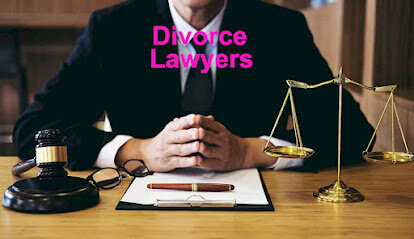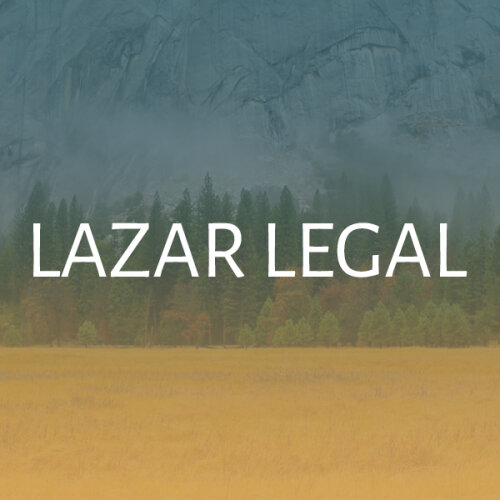Best Will & Testament Lawyers in New York
Share your needs with us, get contacted by law firms.
Free. Takes 2 min.
Or refine your search by selecting a city:
List of the best lawyers in New York, United States
United States Will & Testament Legal Questions answered by Lawyers
Browse our 1 legal question about Will & Testament in United States and read the lawyer answers, or ask your own questions for free.
- Hi, I like to get the information about my deceased sister government pension in Sind Govt.
- I am living in usa and my sister was the govt employee in pakistan about 25 to 27 years. she was unmarried and my parents also passed. I like to know who will the benifits after her death. She passed during her job. I really appreciate it if you guide... Read more →
-
Lawyer answer by A A Abdullahi Law Firm
Hello, Her next of kin will be you and so you shall be the one to receive the benefits and her properties. You can contact us vfor assistance on the documentation and procession
Read full answer
About Will & Testament Law in New York, United States
A Will and Testament is a critical legal document that outlines your wishes regarding the distribution of your assets, guardianship of minor children, and other important matters after your death. In New York, the process of creating and executing a valid Will is governed by state law, which sets specific requirements to ensure a Will is legally binding and reflects your true intentions. Understanding Will & Testament law in New York is essential for effective estate planning and ensuring your assets are handled as you desire.
Why You May Need a Lawyer
While it is possible to draft a Will on your own, hiring a lawyer can be highly beneficial in many cases. Individuals often require legal help in the following situations:
- Ensuring a Will meets all legal requirements to be valid and enforceable in New York.
- Those with complex estates, multiple properties, or large assets who need help with tax planning or asset distribution.
- Blended families, stepchildren, or potential disputes among heirs that may complicate inheritance issues.
- Concerns about challenging or contesting the Will, or if you believe someone may try to influence your decisions.
- Updating or revoking an existing Will, especially after life changes such as marriage, divorce, or the birth of children.
- Designating guardians for minor children or making specific arrangements for dependents with special needs.
- Navigating probate, the legal process of administering the Will after death, which can be complex and time-consuming.
Local Laws Overview
Will & Testament laws in New York have several important features:
- Age and Capacity: You must be at least 18 years old and of sound mind to make a Will.
- Witness Requirements: Your Will must be written, signed by you (the testator), and witnessed by at least two people who do not benefit from the Will.
- Self-Proving Affidavit: Not required by law, but strongly encouraged, a self-proving affidavit can expedite probate by confirming the Will’s authenticity.
- Holographic and Oral Wills: Generally not accepted, except in very limited situations such as active military service.
- Probate: Most Wills must go through probate in Surrogate’s Court, which is the legal process of validating the Will and distributing assets as specified.
- Intestacy: If you die without a valid Will, “intestacy” laws determine how your estate is divided, which may not reflect your true wishes.
- Spousal Rights: New York law provides spousal rights of election to prevent spouses from being completely disinherited.
Frequently Asked Questions
What makes a Will valid in New York?
A Will must be in writing, signed by the creator (the testator), and witnessed by at least two people who are present at the same time. The witnesses should not be beneficiaries.
Can I make changes to my Will after it is signed?
Yes, you can make changes through a legal document called a codicil, or you can create a new Will. Any changes must meet the same legal requirements as the original Will.
What happens if I die without a Will?
If you die without a Will, New York’s intestacy laws determine how your assets will be distributed. Generally, this means your closest relatives inherit, following a set order defined by law.
Do I need a lawyer to write a Will in New York?
It is not legally required, but consulting a qualified lawyer is strongly recommended to ensure your Will is valid, clear, and reflects your wishes. Legal expertise is especially important in complex situations.
Can I name a guardian for my minor children in my Will?
Yes, you can and should use your Will to nominate a guardian for your minor children. The court will usually honor your wishes unless there is a compelling reason not to.
Are handwritten Wills valid in New York?
Handwritten, or holographic, Wills are generally invalid in New York except under extremely limited circumstances, such as when created by military personnel during active duty.
Who should serve as a witness to my Will?
At least two competent adults who are not beneficiaries should witness your Will. This reduces the risk of legal challenges and makes the Will self-proving if signed with an affidavit.
Can an executor also be a beneficiary?
Yes, New York law allows you to name someone as both executor and a beneficiary of your Will. However, ensure they are trustworthy and capable of managing your estate.
How do I revoke or update my existing Will?
You can revoke your Will by creating a new one or physically destroying the previous document. Updates should be made via a codicil or by drafting a new Will, both following legal formalities.
What is probate, and does every Will have to go through it?
Probate is the legal process of validating a Will and distributing assets. Most Wills must go through probate in New York. Some assets, such as jointly owned property or those with named beneficiaries, may pass outside of probate.
Additional Resources
If you need more information or assistance about Wills and Testaments in New York, contact the following resources:
- New York State Unified Court System - Surrogate’s Court handles probate and estate matters
- New York State Bar Association - Offers legal education and referrals for estate planning attorneys
- Legal Aid Society - Provides assistance for those who qualify based on income
- Local county probate courts - Can give procedural information and access to necessary forms
Next Steps
If you are considering creating or updating your Will, or if you are facing issues regarding someone else’s Will, take the following steps:
- List your assets, debts, and any specific wishes regarding distribution and guardianship.
- Consider your choice of executor and guardians for minor children.
- Consult with a qualified estate planning attorney to discuss your situation. An attorney will help ensure your Will complies with New York law and best reflects your intentions.
- Review your estate plan regularly, especially after major life changes such as marriage, divorce, births, deaths, or significant asset changes.
- Keep your Will and related documents in a secure, accessible location, and inform trusted individuals of their whereabouts.
Taking these proactive steps can ensure your wishes are respected and your loved ones are cared for according to your intentions. If you need legal help, do not hesitate to contact a reputable attorney specializing in Wills and Testaments in New York.
Lawzana helps you find the best lawyers and law firms in New York through a curated and pre-screened list of qualified legal professionals. Our platform offers rankings and detailed profiles of attorneys and law firms, allowing you to compare based on practice areas, including Will & Testament, experience, and client feedback.
Each profile includes a description of the firm's areas of practice, client reviews, team members and partners, year of establishment, spoken languages, office locations, contact information, social media presence, and any published articles or resources. Most firms on our platform speak English and are experienced in both local and international legal matters.
Get a quote from top-rated law firms in New York, United States — quickly, securely, and without unnecessary hassle.
Disclaimer:
The information provided on this page is for general informational purposes only and does not constitute legal advice. While we strive to ensure the accuracy and relevance of the content, legal information may change over time, and interpretations of the law can vary. You should always consult with a qualified legal professional for advice specific to your situation.
We disclaim all liability for actions taken or not taken based on the content of this page. If you believe any information is incorrect or outdated, please contact us, and we will review and update it where appropriate.
Browse will & testament law firms by city in New York
Refine your search by selecting a city.















